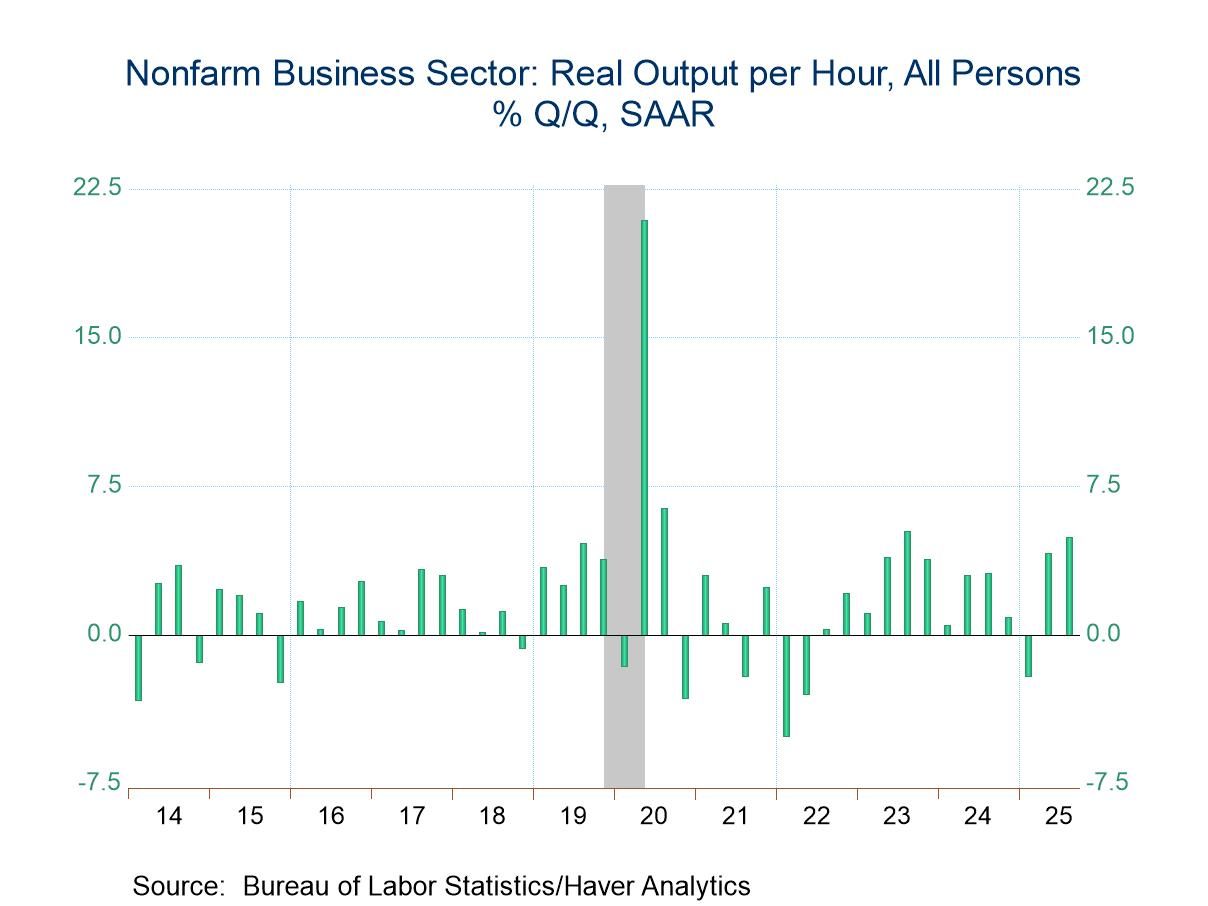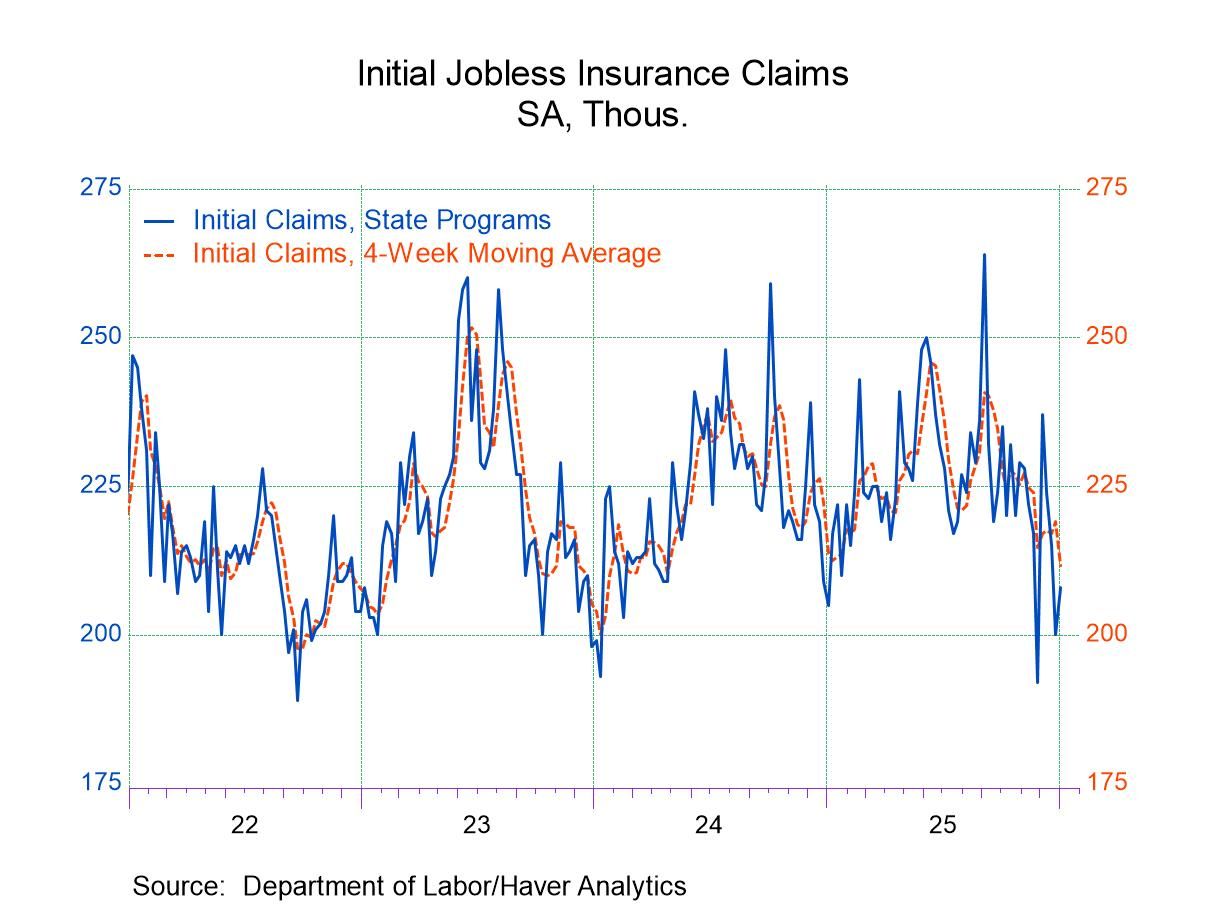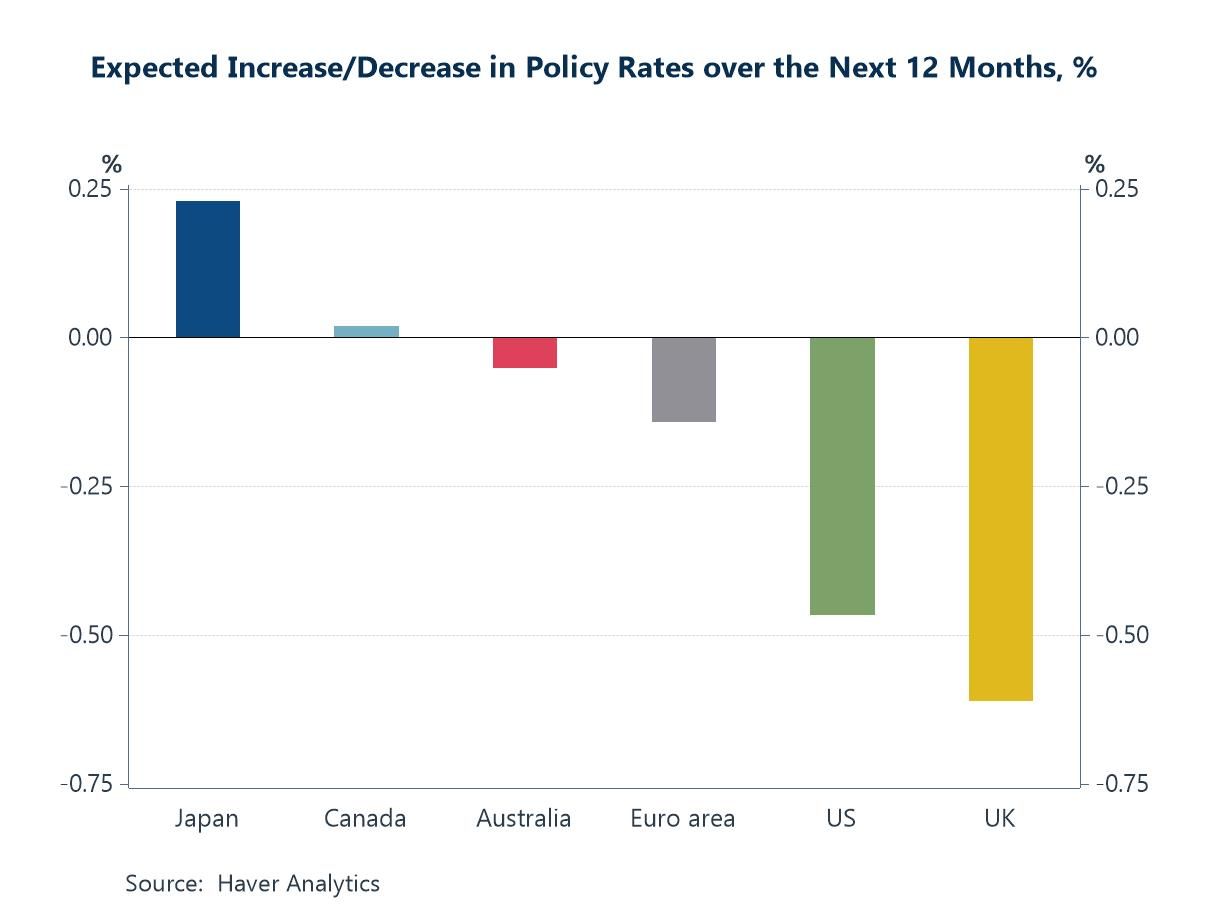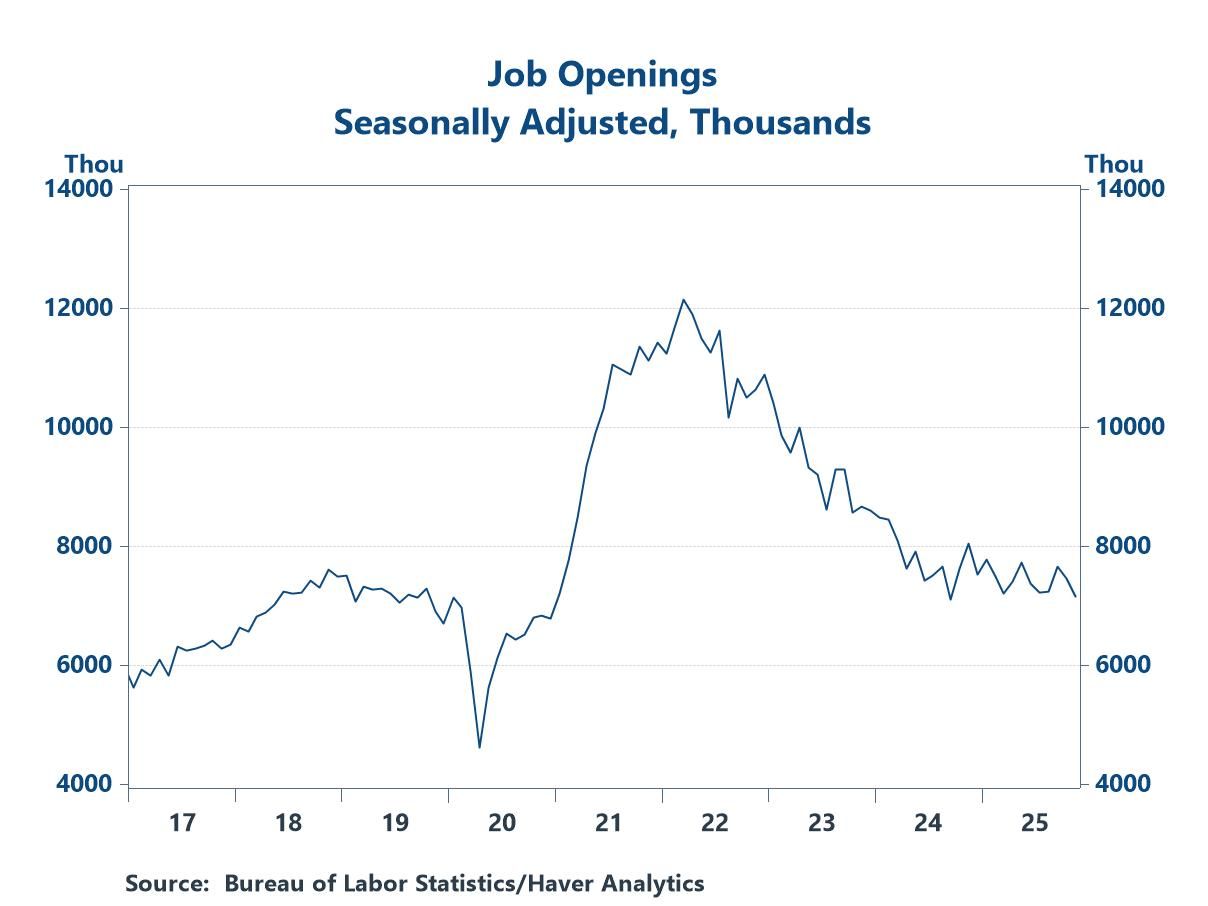 Global| Apr 12 2002
Global| Apr 12 2002Producer Prices Up More Than Expected
by:Tom Moeller
|in:Economy in Brief
Summary
Finished producer prices rose more than expected last month due to a 5.5% surge in energy prices. Food prices rose 0.6%, the third strong monthly increase in a row. Core finished goods prices rose as expected. Unadjusted gasoline [...]
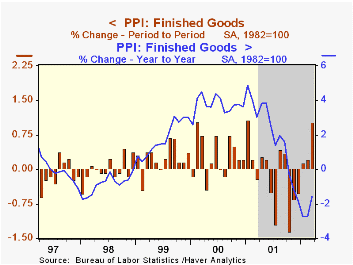
Finished producer prices rose more than expected last month due to a 5.5% surge in energy prices. Food prices rose 0.6%, the third strong monthly increase in a row. Core finished goods prices rose as expected.
Unadjusted gasoline prices jumped 18.6% and fuel oil prices rose 15.3%. Natural gas prices fell for the second month this year and are down 33.5% since the peak in January 2001.
Core finished consumer goods prices rose 0.2% (0.7% y/y) following two months of moderate decline. Capital goods prices rose 0.1% (-0.1% y/y) for the second month in a row.
Intermediate goods prices popped due to higher energy prices. Core intermediate prices rose for the first time since last March.
Crude goods prices also rose due to higher energy prices, but core crude prices fell reflecting a leveling off of the recent rebound in commodity prices.
| Producer Price Index | Mar | Feb | Y/Y | 2001 | 2000 | 1999 |
|---|---|---|---|---|---|---|
| Finished Goods | 1.0% | 0.2 % | -1.6% | 2.0% | 3.7% | 1.8% |
| Core | 0.1% | 0.0% | 0.5% | 1.4% | 1.3% | 1.7% |
| Intermediate Goods | 1.0% | -0.1% | -3.4% | 0.4% | 4.9% | 0.1% |
| Core | 0.3% | 0.0% | -1.7% | -0.1% | 2.6% | -0.3% |
| Crude Goods | 4.0% | -0.8% | -22.7% | 0.3% | 22.8% | 1.5% |
| Core | -0.7% | 1.5% | -6.6% | -10.0% | 7.3% | -4.7% |
by Tom Moeller April 12, 2002
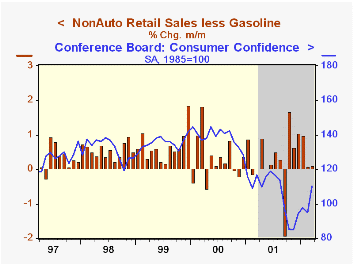
Total retail sales rose modestly last month following a similar gain in February that was revised down slightly. Sales excluding autos rose as expected but the February gain was revised down slightly.
Higher gasoline prices boosted sales at gasoline service stations by 3.8%. Excluding gasoline, nonauto retail sales rose 0.1% for the second month in a row.
Sales of furniture, home furnishings and electronics rose 0.1% and are up 7.6% during the last six months.
Sales at clothing and accessory stores fell slightly but are up 10.4% during the last six months.
Sales at general merchandise stores fell and are up 5.0% since September.
Unit sales of domestic and imported light vehicles fell 1.4% in March to 16.44M units (SAAR).
| Mar | Feb | Y/Y | 2001 | 2000 | 1999 | |
|---|---|---|---|---|---|---|
| Retail Sales & Food Services | 0.2% | 0.2% | 3.6% | 3.5% | 7.6% | 8.2% |
| Excluding Autos | 0.4% | 0.0% | 3.5% | 2.8% | 8.0% | 7.3% |
by Tom Moeller April 12, 2002
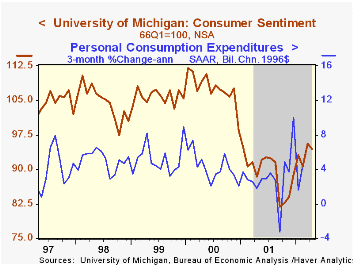
The preliminary April reading of Consumer Sentiment by the University of Michigan fell unexpectedly versus March, probably hurt by violence in the Mideast and lower stock prices.
The University of Michigan survey is not seasonally adjusted.
During the past five years there has been a 37% correlation between the level of consumer sentiment and the 3-month % change in real PCE.
| Univ. of Michigan | Mid-April | Mar | Y/Y | 2001 | 2000 | 1999 |
|---|---|---|---|---|---|---|
| Consumer Sentiment | 94.4 | 95.7 | 6.8% | 89.2 | 107.6 | 105.8 |
Tom Moeller
AuthorMore in Author Profile »Prior to joining Haver Analytics in 2000, Mr. Moeller worked as the Economist at Chancellor Capital Management from 1985 to 1999. There, he developed comprehensive economic forecasts and interpreted economic data for equity and fixed income portfolio managers. Also at Chancellor, Mr. Moeller worked as an equity analyst and was responsible for researching and rating companies in the economically sensitive automobile and housing industries for investment in Chancellor’s equity portfolio. Prior to joining Chancellor, Mr. Moeller was an Economist at Citibank from 1979 to 1984. He also analyzed pricing behavior in the metals industry for the Council on Wage and Price Stability in Washington, D.C. In 1999, Mr. Moeller received the award for most accurate forecast from the Forecasters' Club of New York. From 1990 to 1992 he was President of the New York Association for Business Economists. Mr. Moeller earned an M.B.A. in Finance from Fordham University, where he graduated in 1987. He holds a Bachelor of Arts in Economics from George Washington University.



